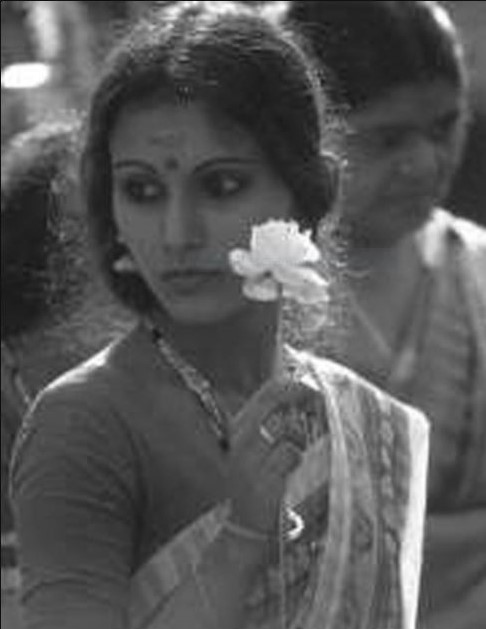

“I have made you the polar star of my life, I will never lose my way in this sea voyage.”
– Maitreyi DeviI have always thought about how people fall in love. Is it something that one voluntarily partakes in or does it happen involuntarily? Is love a unique feeling? Why do people tend to overhype or trivialize it? These thoughts deeply resonated within me when I read Na Hanyate (It Does Not Die) by Maitreyi Devi. Through her writing, she revealed to us that when everyone in this world is falling in love, how one person can do just the opposite, which is, rise in love.
Let us go back to the 1930s when Kolkata was still Calcutta while the British still ruled over India. It was during this time that a sixteen-year-old Maitreyi Devi first met Mircea Eliade a Romanian scholar and a student of her father, the famous philosopher and professor Surendra Nath Dasgupta. During his stay in Calcutta in the Dasgupta household, something unique and sweet soon blossomed between him and Maitreyi Devi. She expresses in Na Hanyate that this feeling was something she had never experienced. The tingling sensation in her heart when she saw him and the times, they spent talking for hours about everything under the sun transformed their love into something that was the purest of all. Maitreyi was a protegee of Rabindranath Tagore. He was her best friend to whom she confided all her feelings and secrets. Her relationship with Tagore was platonic. She narrates how he inspired Maitreyi every day to write.
It is always said that there is a calm before a storm and the love which was woven between Maitreyi and Mircea as a secret was soon discovered and shattered by her father. Mircea was banished from her house never to return. Maitreyi Devi was almost immediately married off to Dr Manmohan Sen, a quinologist, who was fourteen years older than her. She soon became a mother of two and carried on with her duties as a mother and wife in Mungpo, a quaint village on the foothills of Himalayas. Even after such a heartbreak, she did not give up her passion for writing and cherished the time when Rabindranath Tagore spent a long time at her place in Mungpo. Maitreyi Devi even wrote a book titled ‘Mungpote Rabindranath’ which narrates his stay with her.
Maitreyi Devi knew that shortly after returning to Romania, Mircea Eliade published a novel titled La Nuit Bengali (Bengali Nights) in Romanian in which he described his experience in Calcutta and his love for Maitreyi. However, she did not know about the extent of the explicit sexual nature of his book and how he had changed the meaning of their love entirely. The book became extremely popular in Europe; Mircea received fame, wealth, and status. He expressed his unfulfilled desires just for the sake of selling his novel and maximizing the profit.
Maitreyi Devi read his novel for the first time in 1972, forty years after Mircea had published his book. After reading the book she realized his actual intent. Maitreyi was distraught, ashamed, and outraged. She felt that she would no longer let men deliberately undermine her feelings and then disgrace her as her father had done before too. She writes about her father, who as the days went by became increasingly weak both physically and morally. He destroyed his family and severed his ties with her mother for another woman. Ironically, it was her father who brought shame and humiliation upon the Dasgupta household and not Maitreyi for her ‘illicit affair’. She was now adamant to record the incidents that had transpired between her and Mircea, and Na Hanyate was her response.
Maitreyi Devi in 1973, went to Chicago to confront Mircea Eliade about the lies that he had spewed in his book. She went to Chicago to break and blur the patriarchal ties which had kept her bound for so long. As a result of her confrontation, Maitreyi made Eliade promise that an English translation of his book would never be published. She proved that true love did not require one to tolerate the wrongdoings of their loved ones. However, a film starring Hugh Grant and Supriya Pathak called the Bengali Night was produced based on Mircea’s novel. Devi condemned the whole situation as she believed that the film was a direct violation of the promise that Mircea had made. The film insinuated that Maitreyi Devi was the protagonist, which deeply wounded her heart.
Na Hanyate has won the Sahitya Akademi Award and is a stand-alone book. This book narrates a story that never perishes, just like her love for young Eliade. It makes me believe that Maitreyi Devi was a feminist as she was able to accomplish something which many women could not during that period. Therefore, one should not trivialize Na Hanyate as an autobiography of a woman scorned but an account of the socio-political and gender issues prevalent in colonial Bengal during the 1930s.



I really like it whenever people come together and share thoughts.
Great blog, keep it up!
Hey, I think your site might be having browser compatibility issues.
When I look at your website in Ie, it looks fine
but when opening in Internet Explorer, it has some overlapping.
I just wanted to give you a quick heads up! Other then that, very good blog!